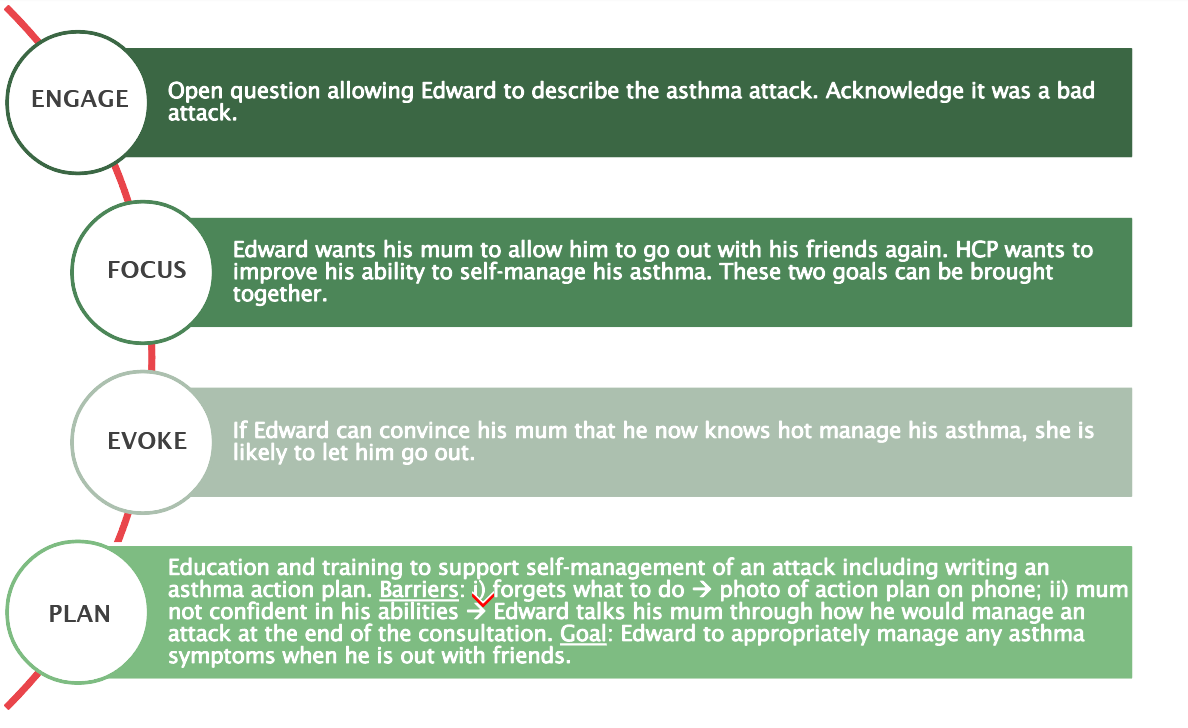Motivational interviewing is a clinical style that can help patients to strengthen their motivation for making behaviour changes. There is a large evidence base to support the effectiveness of this approach when working with young people to instigate health behaviour changes. It is more about conversational skills than ‘interviewing’. You are likely to benefit from participating in a specific motivational interviewing course for teenagers.
Within a consultation the conversation should move to the next stage when the patient is ready. Sometimes it will be necessary to move back, if for instance it become obvious that a patient is actually ambivalent to making a behavioural change. Such a change is only likely to be successful when a patient feels able to make the change and feels that it will achieve the desired goal.
For a teenager to change their behaviour they need to:
- Recognise that their current behaviour is a problem or concern
- Believe they are able to change
- Believe that they will be better off if they change.
Here is an example of a healthcare professional using elements of motivational interviewing to talk to a patient about their recent asthma attack:

.png)
.png)
.png)
.png)